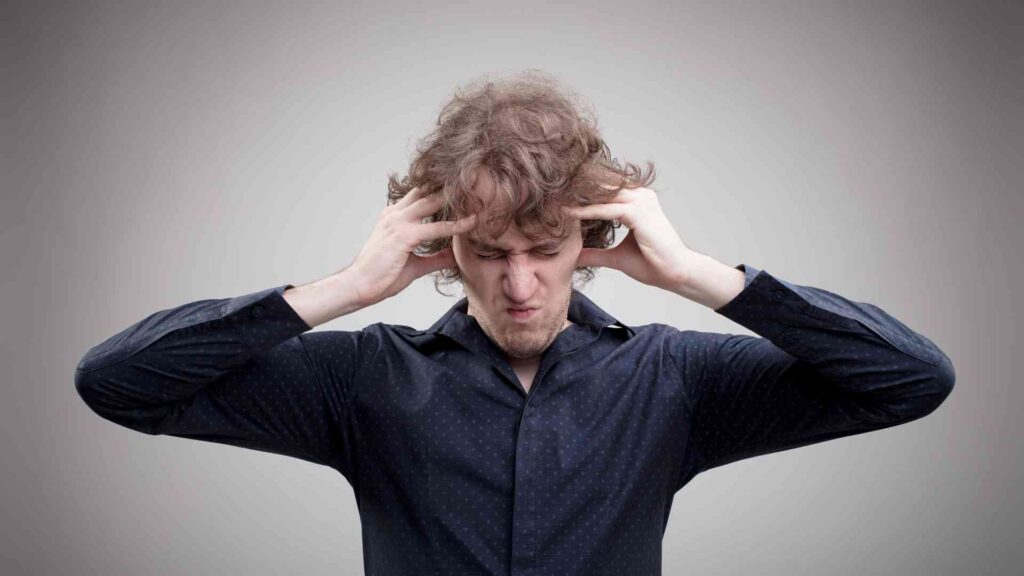Discover comprehensive information for all aspects of sexual health and find resources and guidance to empower your sexual well-being.
Sleep-related painful erection (SRPE) is a rare condition where people get painful erections while they’re…
Discover comprehensive information for all aspects of sexual health and find resources and guidance to empower your sexual well-being.
Sleep-related painful erection (SRPE) is a rare condition where people get painful erections while they’re…
The International Society for the Study of Women’s Sexual Health describes Hypoactive sexual desire disorder…
Painful erections never indicate normalcy, and sometimes signal a medical emergency. Severe pain may necessitate…
The underlying cause as well as the severity of pain determine the varied treatment approaches…
Erectile dysfunction (ED) is a common condition affecting men, often characterized by the inability to…
Achieving and maintaining a strong penile erection is a common concern for many men. It…
Commitment issues can often manifest in romantic relationships, work, and other personal or professional spheres.…
In our fast-paced, stress-filled world, mental health challenges such as racing thoughts and intrusive thoughts are common. Although they might seem similar at first glance, they are distinct phenomena with unique characteristics and implications. Let’s explore each concept.
Table of Contents
ToggleFast-moving, often repetitive thought patterns characterize racing thoughts. They can be overwhelming and may focus on a single topic or represent multiple lines of thought, such as a financial issue, an embarrassing moment, or a phobia.
These thoughts may also escalate, increasing anxiety or feelings of unease, and disrupting concentration.

When experiencing racing thoughts, you may feel like:
Several conditions can contribute to racing thoughts. While anxiety is the most common cause, other conditions can also be responsible:

Racing thoughts are frequently associated with anxiety, occurring not only during anxiety attacks but at any time. They may precede or follow an anxiety episode.
Related: What is Social Anxiety?
ADHD, characterized by patterns of inattention or hyperactivity, may manifest as racing thoughts, particularly when individuals feel overwhelmed by external stimuli. Wandering thoughts and an inability to focus on a single train of thought are common in ADHD.

OCD involves persistent obsessions or compulsions that are challenging to overcome. Racing thoughts can be a form of obsession, creating a sense of being overwhelmed by a continuous stream of thoughts on a specific subject.

Bipolar disorder is characterized by mood shifts between extreme highs (mania) and lows (depression). Racing thoughts often accompany manic episodes, but they can also occur during depression, especially in agitated depression.
Agitated depression, a severe subtype of depression, is characterized by restlessness, anger, and quick reactions instead of lethargy typically associated with depression. Racing thoughts may be more common in individuals with agitated depression.
Related: 8 Types of Anger: What is Your Anger Style?
Some medications used to treat depression, anxiety, or bipolar disorder can lead to racing thoughts as a side effect. In particular, medications may induce agitated depression, triggering the occurrence of racing thoughts.
If you experience racing thoughts, especially after starting a new medication, it’s crucial to consult your doctor promptly. Adjusting the medication or trying an alternative can help manage or alleviate the symptoms. Understanding the underlying cause of racing thoughts is essential for developing an effective treatment plan tailored to the specific condition.

It’s advisable to reach out to a doctor or therapist if you are experiencing racing thoughts regularly, especially if they have become disruptive or are affecting your ability to sleep. Additionally, you should consider scheduling an appointment with a therapist for an evaluation of a mood or mental health disorder if racing thoughts are accompanied by any of the following:

Intrusive thoughts emerge unexpectedly. They consist of unwanted and often unpleasant thoughts and images, which can be aggressive, sexual, or involve sudden reflections on mistakes or worries.
Experiencing distress during such moments is common, but having an intrusive thought occasionally is a typical part of life.
In most cases, intrusive thoughts lack specific meaning. As long as you acknowledge them as mere thoughts and have no inclination to act on them, they pose no harm.
However, if these thoughts occur frequently, cause considerable concern, or disrupt your daily activities, it’s advisable to speak with a doctor.

Intrusive thoughts manifest in various forms. Individuals may experience intrusive thoughts related to:
Concerns about cleanliness, hygiene, and fear of contamination.
Thoughts involving violence, aggression, or causing harm to others.
Worries about doing tasks incorrectly or leaving them unfinished.
Intrusive thoughts related to religious beliefs, blasphemy, or concerns about morality.
Unwanted thoughts of a sexual nature or involving specific situations.
Fear of acting out, saying the wrong thing, or making social mistakes in public.
It’s important to note that there can be other types of intrusive thoughts that may not fit into these categories. Individuals experiencing intrusive thoughts often become concerned about the meaning of these thoughts, leading to attempts to control or suppress them. Feelings of shame and the desire to keep these thoughts secret from others may also arise.
It’s crucial to understand that while the content of the intrusive thought may be disturbing, it typically does not carry a specific meaning. If you have no intention or desire to act on the thought, and you can easily move on with your day, it’s likely not a cause for worry. Seeking support from mental health professionals can be beneficial for those struggling with intrusive thoughts and the associated concerns.
Intrusive thoughts may arise without a discernible cause, occurring randomly as thoughts wander into and quickly exit your mind, leaving no lasting impression.
Less commonly, these thoughts may be linked to an underlying mental health condition, such as obsessive-compulsive disorder (OCD) or post-traumatic stress disorder (PTSD). Alternatively, they could be a symptom of other health issues like brain injury, dementia, or Parkinson’s disease.
Indications of an underlying cause may include intrusive thoughts that:
Changes in mental health should not be taken lightly. Early symptoms of certain conditions may also include alterations in thought patterns, obsessive thoughts, or thoughts involving disturbing imagery.
It’s essential to recognize that these thoughts are not something to be ashamed of, but they are a compelling reason to seek a diagnosis and treatment. Seeking professional help can provide the support needed to understand the underlying causes and initiate a path toward feeling better.
Intrusive thoughts are not exclusive to individuals with underlying conditions; anyone can experience them. However, several conditions include intrusive thoughts as a prominent symptom:

In OCD, intrusive thoughts lead to significant distress. Individuals with OCD often engage in efforts to suppress or stop these unwanted thoughts (obsessions). This can involve repetitive behaviors or habits known as compulsions, which may interfere with their quality of life. Treatment for OCD can lead to significant improvement.
Individuals with PTSD may experience intrusive thoughts related to a traumatic event they’ve endured. These thoughts or memories can trigger other PTSD symptoms, such as insomnia or heightened alertness. PTSD can significantly impact daily functioning, but trauma-focused treatment offers the potential for symptom relief.

People with eating disorders may have intrusive thoughts related to their body, weight loss, or eating habits. These thoughts can evoke feelings of guilt, shame, or fear related to food or body image, causing considerable distress. Eating disorders also manifest in significant behavioral changes related to food and eating. Seeking treatment for eating disorder symptoms is crucial to avoid serious complications.
It’s important to communicate with a doctor if you experience symptoms related to these conditions. With appropriate treatment, individuals can manage and alleviate the distress caused by intrusive thoughts and work towards improving their overall well-being.
Related: Orthorexia vs. Anorexia: Similarities, Differences, and More
Because intrusive thoughts often feel foreign, managing them involves reducing sensitivity to the thoughts and their contents. Here are some strategies to help manage intrusive thoughts:
Work with a therapist to learn ways of thinking that make you less sensitive to intrusive thoughts. In a controlled setting, expose yourself to triggers for your intrusive thoughts to learn to react to them differently.
Medications, such as selective serotonin reuptake inhibitors (SSRIs), are sometimes used to treat conditions like OCD and PTSD.

Recognize intrusive thoughts for what they are—just thoughts.
Learn to label them when they occur and understand that thoughts do not equate to intent or behavior. This recognition may help reduce the frequency or intensity of unwanted thoughts.
Understanding that intrusive thoughts are separate from your intentions or actions is a crucial step in managing them. Seeking professional help, whether through therapy or medication, can provide valuable support in developing coping mechanisms and reducing the impact of intrusive thoughts on your daily life. Additionally, practicing self-care and fostering a healthy mindset can contribute to a more balanced and resilient mental state.
Intrusive thoughts, while distressing, may not be a cause for concern if they occur sporadically. In many cases, these thoughts are not linked to anything specific. Recognizing them as mere thoughts can assist in moving past them.
When intrusive thoughts are associated with an underlying condition, such as OCD or PTSD, the process of diagnosis and treatment may take time to initiate. However, adhering to a treatment plan can help alleviate symptoms and reduce the frequency of intrusive thoughts. Approaches like medication and cognitive-behavioral therapy (CBT) can be effective in coping with these thoughts when they arise.
If intrusive thoughts start significantly interfering with your daily life, it’s advisable to discuss your experiences with a doctor. Seeking treatment can contribute to making intrusive thoughts more manageable and improving your overall well-being. Remember that reaching out for support is a proactive step towards finding effective strategies to cope with and overcome intrusive thoughts.
While both racing and intrusive thoughts involve unwanted cognitive activity, their nature, triggers, and impacts differ significantly.
Understanding the differences between racing thoughts and intrusive thoughts is crucial for effective management and mental well-being. While both are involuntary and can be distressing, their unique characteristics necessitate tailored approaches to treatment. By recognizing these differences and employing appropriate strategies, individuals can gain better control over their mental health.
Promptly seeking professional help can lead to an accurate diagnosis and the development of an appropriate treatment plan. A healthcare provider or mental health professional can offer guidance and support tailored to your specific situation, helping you manage and alleviate the symptoms of racing thoughts and any underlying mental health concerns.
It’s important to note that everyone’s experience is unique, and what works for one person may not work for another. If you find that racing or intrusive thoughts are interfering with your ability to function or enjoy life, consider reaching out to a mental health professional for personalized support and guidance.
Dr. Nishtha, a medical doctor holding both an MBBS and an MD in Biochemistry, possesses a profound passion for nutrition and wellness. Her personal journey, marked by significant struggles with physical and mental health, has endowed her with a unique empathy and insight into the challenges countless individuals face. Driven by her own experiences, she leverages her background to offer practical, evidence-backed guidance, empowering others on their paths to achieving holistic well-being. Dr. Nishtha truly believes in the interconnectedness of the mind and body. She emphasizes the significance of understanding this connection as a crucial stride toward attaining balance and happiness in life.

